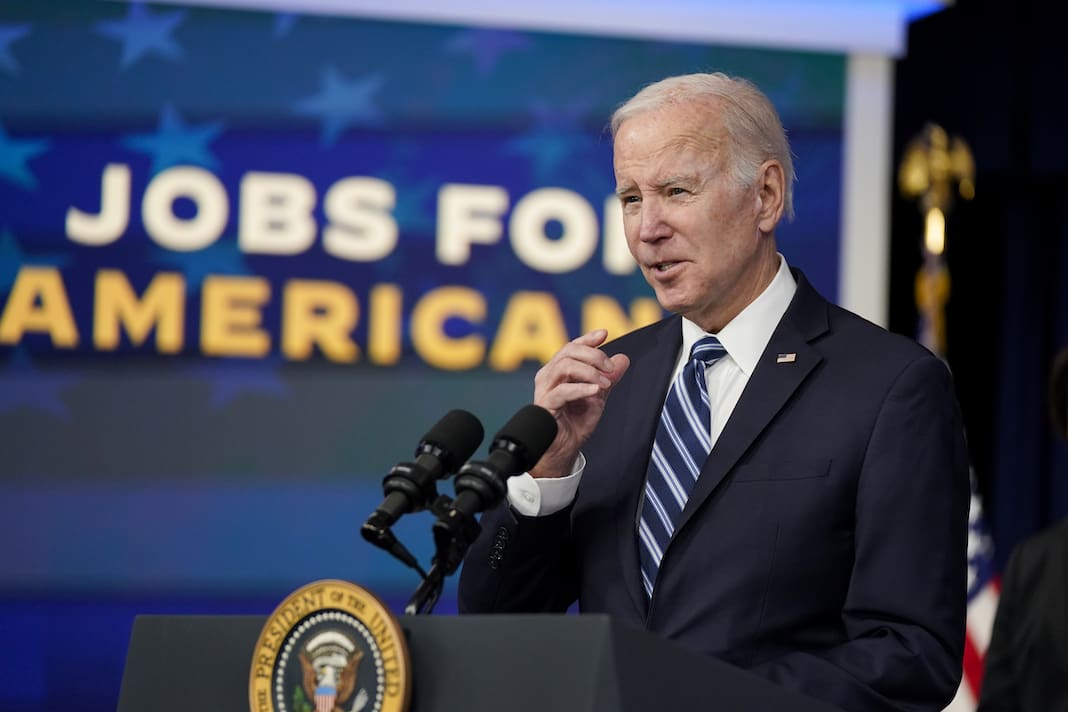Biden's tentative debt limit deal is prioritizing the economy over politics
A default by the U.S. government on its debts could affect 6 million jobs and trigger global economic chaos, but President Joe Biden has struck a compromise with House Speaker Kevin McCarthy to prevent that.

The tentative deal that President Joe Biden has negotiated with House Speaker Kevin McCarthy to suspend the ceiling on U.S. government borrowing to meet its existing debts would avoid triggering default and a series of events that economic experts have said would be devastating to the U.S. and global economies. With the deal, the Biden administration prioritized protecting recent economic gains over winning a partisan political battle.
Biden announced the deal on Sunday in an address from the Roosevelt Room at the White House, during which he said: “It takes the threat of catastrophic default off the table; it protects our hard-earned and historic economic recovery. And the agreement also represents a compromise, which means no one got everything they want. But that’s the responsibility of governing.”
The Fiscal Responsibility Act of 2023, if passed, will suspend the limit on how much the federal government can borrow and increase it by 1% in 2025, allowing it to continue meeting its financial obligations and avoid defaulting on its payments.
In exchange for the limit increase, nondefense spending will be kept at 2023 levels and increased by 1% in 2025, after which there will be no caps in place. By contrast, the initial proposal favored by House Republicans, the Limit, Save, Grow Act, would have capped spending for 10 years.
In a conference call with reporters, a senior White House official said this deal will “protect non-defense spending that helps support just a range of key programs that the American people count on, from scientific research, to Meals on Wheels, to education, and so many others.”
The agreement would also cancel COVID-19 relief spending that hasn’t been allocated to specific agencies or recipients, which the Congressional Budget Office has estimated to be about $30 billion. New work requirements for people receiving food assistance through the Supplemental Nutrition Assistance Program (SNAP) would be added.
Republicans were unsuccessful in cutting funding for IRS enforcement that was contained in the Inflation Reduction Act, enacted in 2022; instead, $20 billion of the total $80 billion allocated to the IRS would be spent on other nondefense priorities. The agency would still be able to use most of the new funds to go after tax cheats and modernize its operations.
Biden’s plan to cancel student loan debt would also remain in place.
Some Republican members of Congress have voiced displeasure with the agreement.
Sen. Rand Paul (R-KY) tweeted, “Conservatives have been sold out once again.” Rep. Nancy Mace (R-SC) claimed, “Republicans got outsmarted by a President who can’t find his pants.”
Additionally, members of the far-right House Freedom Caucus have floated the prospect of voting to oust McCarthy from his position as House Speaker to express their displeasure with the deal.
Before the agreement was announced, economic experts raised concerns about the negative effect a default would have on both the domestic and the international economies.
Calvin Norris, an interest rate strategist at Aegon Asset Management, told the New York Times that cutting off the $24 trillion debt market from the Treasury Department would be “catastrophic” and a “horror scenario.”
In a May 8 interview with NPR, former Federal Reserve economist Claudia Sahm said that a default would prevent the government from paying out Social Security benefits and military salaries.
“It’s a cascade of bad events that happen when we default because we’re not making good on past promises,” she said.
Mark Zandi, chief economist at Moody’s Analytics and a former adviser to John McCain’s 2008 presidential campaign, told the Associated Press for a May 22 story, “No corner of the global economy will be spared” if a default occurs, citing concerns about the many international operations, such as factories and investors, that rely on Treasury debt to continue doing business.
Zandi and Moody’s assistant director Bernard Yaros authored a September 2021 report that determined that a default would end up costing up to 6 million U.S. jobs and that it could wipe out $15 trillion in household wealth and increase the unemployment rate to 9%.
Published with permission of The American Independent Foundation.
Recommended

U.S. House Speaker Johnson says IVF should be protected — just not by Congress
U.S. House Speaker Mike Johnson said Thursday that it’s up to states and not Congress to preserve access to in vitro fertilization, weighing in on a growing national debate and campaign issue.
By Jennifer Shutt, States Newsroom - March 14, 2024
Biden calls for expanded child tax credit, taxes on wealthy in $7.2 trillion budget plan
President Joe Biden released his budget request for the upcoming fiscal year Monday, calling on Congress to stick to the spending agreement brokered last year and to revamp tax laws so that the “wealthy pay their fair share.”
By Jennifer Shutt, States Newsroom - March 11, 2024
Telehealth abortions on the rise since Dobbs, new report shows
Researchers studying national abortion trends found that in the 15 months since Roe v. Wade fell, abortion rates remained elevated despite more limited access throughout the U.S., according to the Society of Family Planning’s latest #WeCount report published Wednesday.
By Sofia Resnick, States Newsroom - February 28, 2024










































































